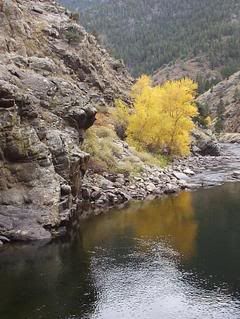Native languages have marked so many locations in the Americas - Misquamicut, Rhode Island; Teotihuacan, Mexico; and Saskatoon, Saskatchewan, Canada. More than half of the U.S. states have Native names.
Can you guess the names of these well-known places from their translations?
1. Red people
2. Isolated thing in the water
3. Flat water
(answers at the bottom of this article)
You may never have heard of some of the cities with the greatest number of First Nations people, but these places natives can call home and find themselves in the majority. A rare experience these days.
Chinle, Arizona; Towaoc, Colorado; Red Lake, Minnesota; and White Swan, Washington are such towns, most being on the reservations. But there are neighborhoods in major cities where Native people of many tribes moved closer together after their forced relocation to the city from Native communities in the 1950s. Uptown in Chicago and S. Federal Blvd. in Denver are home to thousands of First Nations people. These urban areas are also home and shelter for Native cultures. They are an important part of these cities and to the people living there, no matter what race.
And now the answers:
1. Oklahoma is "red people" from the Choctaw language.
2. The Algonquin’s' "isolated thing in the water" is better known as Manhattan.
3. If you've ever driven through Nebraska, you will understand why the Otoe people named it "flat water."
Monday, December 31, 2007
Sunday, December 2, 2007
First Nations Legacy - "We are all related"
The Dakota people say "mitakuye oyasin," meaning, "We are all related." It is used as a blessing or a way to end a prayer or a ceremony.

In our modern world, as researchers map genetic codes, we are finding out how very little difference there is among all life forms. We share more than 98 percent of genetic code with chimpanzees, and a surprising number of genetic code - 60 to 88 percent - with bees, chickens and mice.*
As people begin to think of the consequences of human consumption and changing global climate patterns, we might benefit from reminding ourselves that we are related to all life on Earth.
Aho - mitakuye oyasin.
*U.S. Dept. of Health and Human Services - National Institute of Health

In our modern world, as researchers map genetic codes, we are finding out how very little difference there is among all life forms. We share more than 98 percent of genetic code with chimpanzees, and a surprising number of genetic code - 60 to 88 percent - with bees, chickens and mice.*
As people begin to think of the consequences of human consumption and changing global climate patterns, we might benefit from reminding ourselves that we are related to all life on Earth.
Aho - mitakuye oyasin.
*U.S. Dept. of Health and Human Services - National Institute of Health
Subscribe to:
Posts (Atom)

